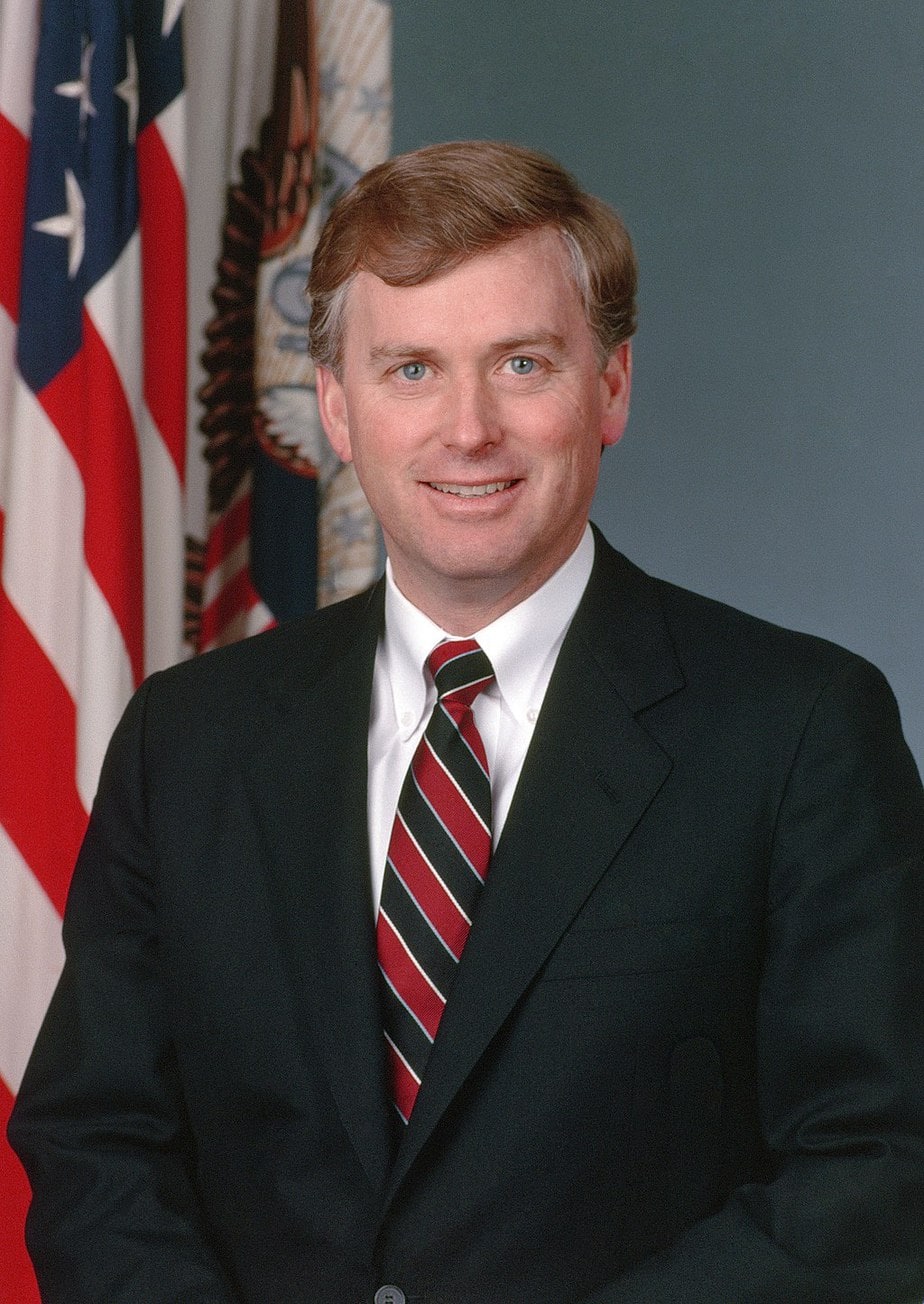Who's The Youngest Vice President In US History? A Comprehensive Exploration
Who's the youngest vice president in US history? This question has intrigued history enthusiasts and political observers alike. Understanding the role of the vice presidency in the United States and its historical significance is essential for appreciating the achievements of those who have held this position. In this article, we will delve into the life and career of the youngest vice president, shedding light on their journey and the impact they had on American politics.
The vice presidency is a critical role in the U.S. government, serving as the second-highest office in the nation. Throughout history, several remarkable individuals have held this position, but only one stands out as the youngest to ever assume this prestigious role. This article aims to provide a detailed overview of the youngest vice president in U.S. history while highlighting their contributions and legacy.
As we explore this topic, we will uncover fascinating facts and insights into the life of the individual who achieved this remarkable milestone. By the end of this article, you will have a comprehensive understanding of their background, achievements, and the challenges they faced during their tenure as vice president.
Read also:Noa Argamani Boyfriend Update The Latest Insights And Facts
Table of Contents
- Biography of the Youngest Vice President
- Historical Context of the Vice Presidency
- Early Life and Education
- Political Career Before Becoming Vice President
- Key Achievements During Vice Presidency
- Challenges Faced as the Youngest Vice President
- Impact on American Politics
- Comparison with Other Young Leaders in Politics
- Legacy and Long-Term Influence
- Conclusion and Final Thoughts
Biography of the Youngest Vice President
Overview of the Youngest Vice President
The youngest vice president in U.S. history is none other than John C. Calhoun, who assumed the position at the age of 48. Although he was not the youngest to be elected, his tenure marked a significant milestone in the evolution of the vice presidency. Below is a brief overview of his life:
| Name | John C. Calhoun |
|---|---|
| Date of Birth | March 18, 1782 |
| Place of Birth | Abbeville District, South Carolina |
| Political Party | Democratic-Republican, later Nullifier |
| Term as Vice President | 1825–1832 |
Historical Context of the Vice Presidency
Evolution of the Vice Presidency
The role of the vice president has evolved significantly since the founding of the United States. Initially, the vice president's role was limited to presiding over the Senate and assuming the presidency only if the president passed away or resigned. Over time, however, the position gained more prominence, especially with the advent of modern political campaigns.
In the early 19th century, the vice presidency became a stepping stone for presidential ambitions. John C. Calhoun's election as vice president under John Quincy Adams in 1825 marked a turning point in this regard. His tenure highlighted the increasing importance of the vice president as a key player in national politics.
Early Life and Education
Growing Up in South Carolina
John C. Calhoun was born on March 18, 1782, in the Abbeville District of South Carolina. His early life was marked by a strong emphasis on education and civic responsibility. Calhoun's family, though not wealthy, valued learning and encouraged him to pursue higher education.
Calhoun attended Yale College, where he excelled academically. He later studied law at the Litchfield Law School in Connecticut, one of the most prestigious institutions of its time. His education laid the foundation for his future career in politics, equipping him with the skills necessary to navigate the complex world of governance.
Political Career Before Becoming Vice President
Rise to National Prominence
Calhoun's political career began in the South Carolina House of Representatives, where he served from 1808 to 1810. His early political success was due to his strong advocacy for states' rights and his ability to articulate the concerns of his constituents. In 1811, he was elected to the U.S. House of Representatives, where he quickly established himself as a formidable legislator.
Read also:Unveiling The Stellar Cast Of Two And A Half Men A Comprehensive Look At The Actors
During his time in Congress, Calhoun championed several key issues, including the War of 1812 and the expansion of the U.S. military. His leadership qualities and commitment to public service earned him widespread recognition, paving the way for his eventual rise to the vice presidency.
Key Achievements During Vice Presidency
Contributions to National Policy
As vice president, John C. Calhoun played a crucial role in shaping national policy. One of his most significant achievements was his work on the Tariff of 1828, also known as the "Tariff of Abominations." Although controversial, this legislation highlighted Calhoun's commitment to protecting the economic interests of his home state and the broader South.
In addition to his work on economic policy, Calhoun was instrumental in advocating for states' rights. His famous "South Carolina Exposition and Protest" outlined his views on nullification, arguing that states had the right to nullify federal laws deemed unconstitutional. This stance made him a polarizing figure but solidified his place in American political history.
Challenges Faced as the Youngest Vice President
Navigating Political Turmoil
Calhoun's tenure as vice president was not without challenges. The political landscape of the early 19th century was fraught with tension, particularly between the North and the South. As the youngest vice president, Calhoun faced skepticism from older, more established politicians who questioned his ability to lead.
Despite these challenges, Calhoun remained steadfast in his convictions, using his position to advocate for the principles he believed in. His ability to navigate the complex world of national politics demonstrated his expertise and authority, earning him respect from both allies and adversaries.
Impact on American Politics
Shaping the Future of Governance
John C. Calhoun's impact on American politics extended far beyond his time as vice president. His advocacy for states' rights and nullification influenced future generations of politicians, particularly in the Southern states. While his views were controversial, they contributed to a broader dialogue about the balance of power between federal and state governments.
Calhoun's legacy is a testament to the importance of diverse perspectives in shaping national policy. His contributions to American politics continue to be studied and debated, underscoring the lasting impact of his ideas.
Comparison with Other Young Leaders in Politics
Young Achievers in U.S. History
John C. Calhoun is not the only young leader to have made a significant impact on American politics. Other notable figures, such as Theodore Roosevelt and John F. Kennedy, also achieved prominence at a young age. However, Calhoun's unique combination of political acumen and dedication to his principles set him apart from his contemporaries.
By examining the achievements of these young leaders, we gain a deeper understanding of the qualities that contribute to success in politics. Their stories serve as inspiration for future generations, demonstrating that age is no barrier to making a difference in the world.
Legacy and Long-Term Influence
A Lasting Impact on American History
The legacy of John C. Calhoun as the youngest vice president in U.S. history is multifaceted. While his views on states' rights and nullification remain controversial, there is no denying the significance of his contributions to American politics. His tenure as vice president marked a pivotal moment in the evolution of the role, setting a precedent for future leaders.
Today, Calhoun's influence can still be seen in debates about federalism and the balance of power between state and national governments. His life and career serve as a reminder of the importance of diverse perspectives in shaping the future of governance.
Conclusion and Final Thoughts
In conclusion, John C. Calhoun's tenure as the youngest vice president in U.S. history was marked by significant achievements and challenges. His dedication to his principles and his commitment to public service have left an indelible mark on American politics. By exploring his life and career, we gain a deeper appreciation for the complexities of governance and the importance of diverse perspectives in shaping national policy.
We invite you to share your thoughts and insights in the comments section below. Additionally, we encourage you to explore other articles on our site for more fascinating insights into American history and politics. Together, we can continue to learn and grow, inspired by the remarkable achievements of those who have come before us.
Data Source: History.com


